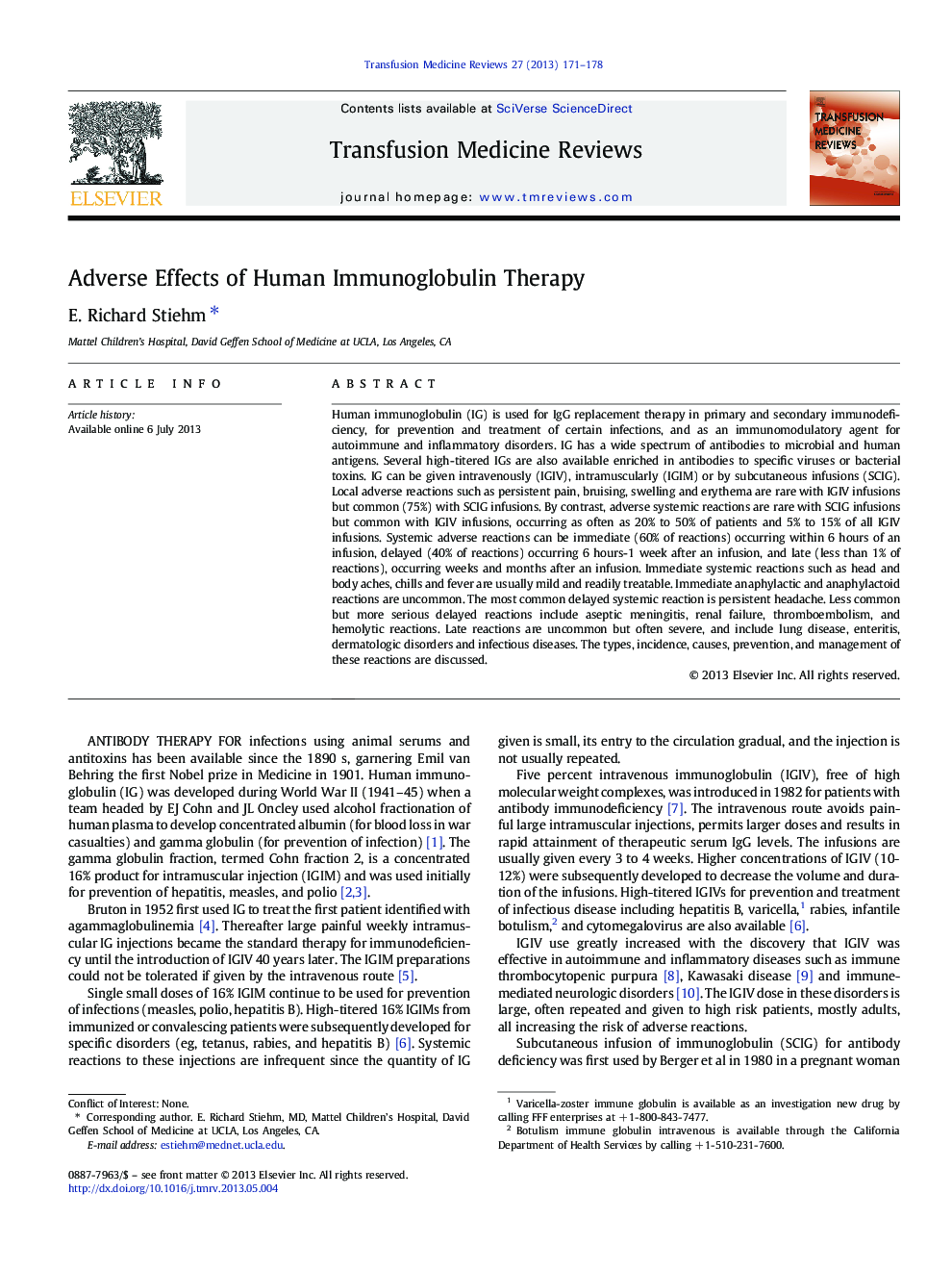| Article ID | Journal | Published Year | Pages | File Type |
|---|---|---|---|---|
| 6114361 | Transfusion Medicine Reviews | 2013 | 8 Pages |
Abstract
Human immunoglobulin (IG) is used for IgG replacement therapy in primary and secondary immunodeficiency, for prevention and treatment of certain infections, and as an immunomodulatory agent for autoimmune and inflammatory disorders. IG has a wide spectrum of antibodies to microbial and human antigens. Several high-titered IGs are also available enriched in antibodies to specific viruses or bacterial toxins. IG can be given intravenously (IGIV), intramuscularly (IGIM) or by subcutaneous infusions (SCIG). Local adverse reactions such as persistent pain, bruising, swelling and erythema are rare with IGIV infusions but common (75%) with SCIG infusions. By contrast, adverse systemic reactions are rare with SCIG infusions but common with IGIV infusions, occurring as often as 20% to 50% of patients and 5% to 15% of all IGIV infusions. Systemic adverse reactions can be immediate (60% of reactions) occurring within 6 hours of an infusion, delayed (40% of reactions) occurring 6 hours-1 week after an infusion, and late (less than 1% of reactions), occurring weeks and months after an infusion. Immediate systemic reactions such as head and body aches, chills and fever are usually mild and readily treatable. Immediate anaphylactic and anaphylactoid reactions are uncommon. The most common delayed systemic reaction is persistent headache. Less common but more serious delayed reactions include aseptic meningitis, renal failure, thromboembolism, and hemolytic reactions. Late reactions are uncommon but often severe, and include lung disease, enteritis, dermatologic disorders and infectious diseases. The types, incidence, causes, prevention, and management of these reactions are discussed.
Related Topics
Health Sciences
Medicine and Dentistry
Hematology
Authors
E. Richard Stiehm,
